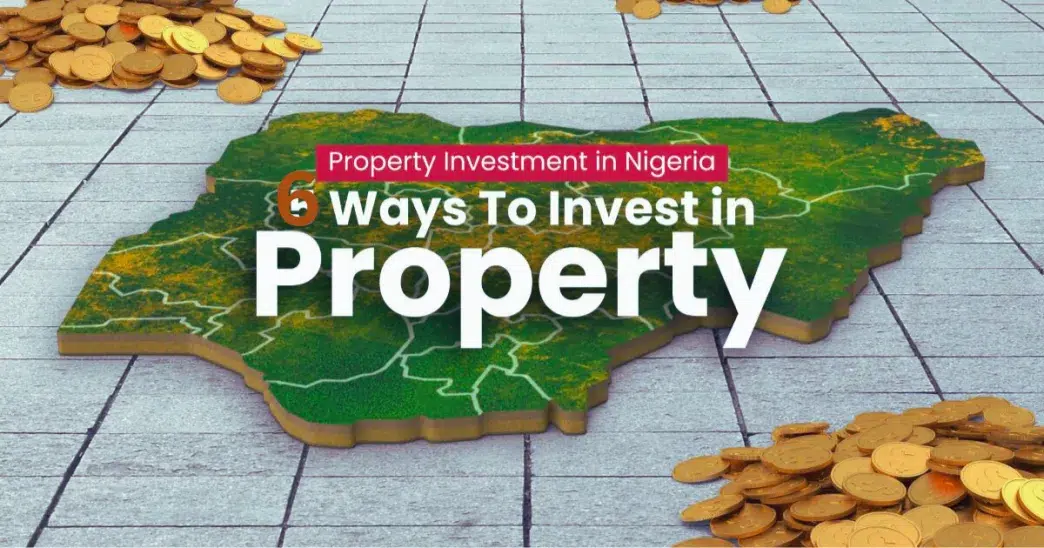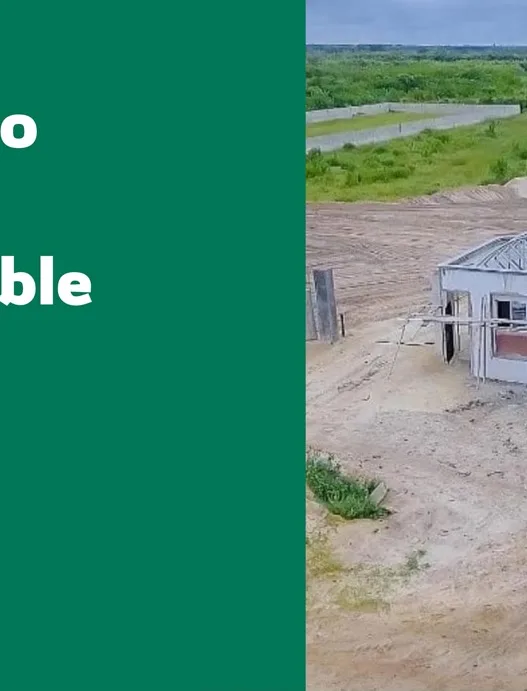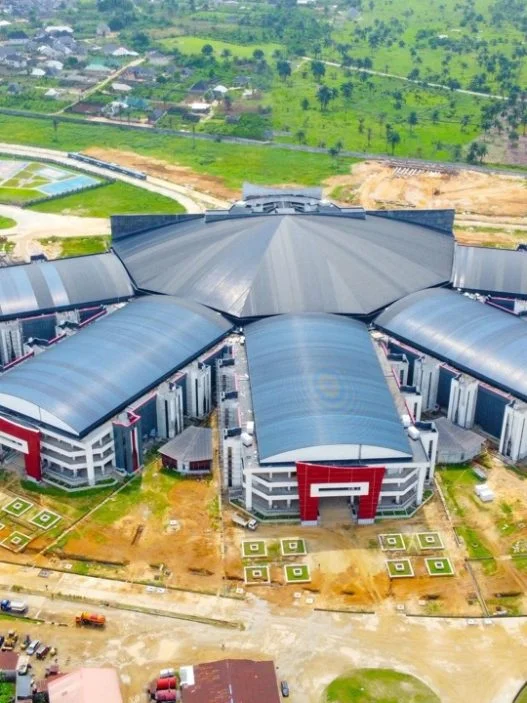Investing in land in Nigeria is something most Nigerians look out to especially in the current condition of the country. When it comes to how to Invest in land, many Nigerians believe in the land as a long-term investment that yields profit in the future and others want it just for an asset that counts.
Considering the hardship of the country, investing in land will be a good and profitable opportunity, but you can’t invest in land without understanding land investment procedures or planning towards investment.
For buyers, especially first-time land buyers in Nigeria It is necessary to carefully plan and execute land buying according to the right process which we will be discussing soon.
How to Invest in Land in Nigeria may seem like a hard or impossible process due to factors like legal regulations, market fluctuations, and location choices. Read this article to guide and help you to overcome any obstacles or fears of purchasing land in Nigeria.
Step-by-Step Process on How To Invest in Land in Nigeria
1. Set Clear Goals
New investors often get caught up in trends and excitement. To succeed, start by setting clear goals and objectives. For instance, are you looking for how to invest in land for personal use or , or are you hoping to generate rental income or capital appreciation over time? Are you considering how to invest in land like; residential, commercial, or agricultural land? Answering these questions is the first step toward making an informed decision.
2. Research and Choose a Location
Once your objectives are clear, selecting the right location becomes essential. In Nigeria, factors like infrastructure development, accessibility, and the local economy should guide your decision.
For instance, areas with good road networks, proximity to commercial hubs, and ongoing construction projects tend to appreciate faster. It’s also wise to monitor how government policies, security situations, and economic conditions influence property values in these locations.
3. Select a Property Type
After choosing a suitable area, determine the type of property that aligns with your investment goals. This choice can vary depending on whether you want to invest in residential plots, commercial sites, industrial zones, or even agricultural land.
Some investors opt for real estate investment trusts (REITs) if they prefer a hands-off approach that doesn’t involve direct property management. Each property type has unique benefits and risks, and the choice should depend on your financial capacity and long-term vision.
4. Chose secure Financing options
Securing financing is another key aspect of investing in land. Not everyone can afford expensive land, so exploring different financing options on how to invest in land is necessary. This can include mortgage loans, partnering with other investors, or utilizing real estate crowdfunding platforms.
5. Conduct Due Diligence
Before finalizing any land purchase in Nigeria, verify the property’s ownership and title, ensure there are no legal disputes or encumbrances, and confirm that the land is free from environmental or zoning issues. Failing to carry out proper checks can lead to complications that might affect your investment negatively.
6. Close the Deal and Manage
Once all legalities are settled, closing the deal involves signing contracts, transferring ownership, and handling any necessary paperwork.
At this stage, you should be clear on how you plan to manage the property. For instance, if it’s for rental income, you’ll need a property manager or strategy for maintenance and tenant management. If it’s for capital appreciation, you need to keep an eye on market trends and property values.
Finally, it’s essential to have an exit strategy. This means considering how long you intend to hold the property and under what conditions you might want to sell, refinance, or reinvest.
Real Estate Investing Risks and Challenges on How to Invest in Land
If you are looking to know how to invest in land you must be aware of potential scams and learn from experienced investors because real estate investment in Nigeria comes with its own set of challenges, such as fraudulent land sales, fluctuating property values, and unforeseen regulatory changes.
Ultimately, the goal is to make strategic decisions based on a well-rounded understanding of the market, and a clear vision of your investment’s potential.
Economic Risks
Economic risks are related to changes in the economy that can affect the value of properties. For example, market fluctuations happen when property prices go up or down due to changes in supply and demand or because of an economic downturn. When inflation rises, it can reduce the value of your property or make it hard to earn good rental income. Additionally, the value of Nigeria’s currency, the Naira, is often unstable, and this can discourage foreign investors or lead to unpredictable property prices.
Regulatory Risks
Regulatory risks involve the laws and rules that affect real estate. In Nigeria, land ownership can sometimes be unclear due to missing or fake documents, leading to disputes over who owns a property. Also, frequent changes in government policies can disrupt the market and negatively impact investments. Not following regulations properly can result in fines or even losing your property.
Environmental Risks
Environmental risks are tied to natural events and infrastructure. Flooding and other natural disasters can happen due to climate change or poor drainage systems, damaging properties. Also, pollution or neglect can make an area less desirable and reduce property values. Poor infrastructure like bad roads or lack of clean water and electricity can also lower the value of a property.
Social Risks
Social risks are linked to community and security issues. Insecure areas with high crime rates are less attractive to tenants and buyers. Additionally, poor relationships with the local community can lead to conflicts or delays in property development. Social unrest, such as protests or civil disturbances, can also lower property values or make it difficult to rent out properties.
Financial Risks
Financial risks include difficulties related to money and funding. For instance, limited access to credit or high-interest rates can make it hard for investors to finance property purchases. Liquidity risks mean that selling properties quickly for cash can be challenging, especially during tough economic times. There are also tax implications where complicated tax laws or unexpected taxes can reduce your profits.
Legal Risks
Legal risks involve legal disputes or issues. Property disputes with other parties can lead to costly and lengthy court cases. Enforcing contracts, such as lease agreements, can sometimes be difficult, causing problems for investors. Not following legal requirements can also result in penalties or property loss.
To reduce these risks, investors should:
- Do thorough research before buying any property.
-
Hire professionals like lawyers and surveyors to check the property’s details.
-
Create flexible investment strategies to adapt to changes.
-
Monitor market trends and regulations closely.
-
Build good relationships with the local community.
-
Ensure proper property management and maintenance.
-
Diversify investments to avoid putting all funds in one place.
By understanding and preparing for these risks, investors can protect their assets and increase their chances of success in the Nigerian real estate market.
Conclusion
Remember, to know how to Invest in Land in Nigeria, you need to educate yourself and seek expert advice to ensure informed decisions. A good investment begins with recognizing what you want to achieve and understanding how to explore the Nigerian property market which could be done with the help of a real estate agent or a real estate company.
Get the best of Real Estate delivered straight to your inbox weekly.
Real Estate updates the way you want it.





















[…] How to Invest in Land in Nigeria: Things You Must Know […]